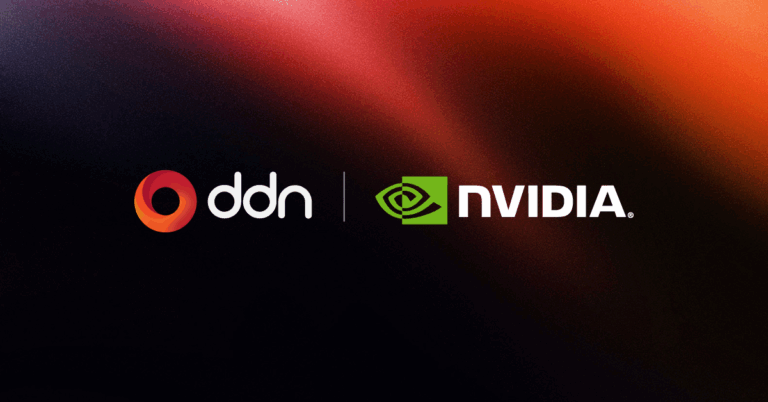What is a Data Ocean
A data ocean is an evolution of the data lake. It is a unified, scalable, and interoperable ecosystem that connects multiple data sources: structured, semi-structured, and unstructured across regions, clouds, and architectures. Unlike siloed data lakes, data oceans are globally integrated. They enable advanced AI analytics, metadata-driven search, and real-time insights at exascale.
Why is a Data Ocean important for AI
AI thrives on massive, diverse datasets. Legacy storage architectures can struggle with the scale, speed, and metadata depth that modern AI applications demand. Data oceans address these challenges by providing:
- Instant access to distributed data.
- Rich, dynamically tagged metadata for granular search.
- High throughput to optimize AI model training and inference.
- Environments that support rapid experimentation and deployment for AI pipelines, including retrieval-augmented generation.
How does DDN support Data Ocean architecture
DDN’s Infinia platform offers several critical capabilities:
- A unified global namespace that enables real-time access to distributed data
- Metadata search performance up to 600 times faster than AWS S3
- Native support for multi-cloud, edge, and on-premises deployments
- Dynamic metadata tagging for AI data discovery and lifecycle management
- Seamless integration with AI frameworks like NVIDIA NIMs, NeMo, and Apache Spark
What is a Data Lake
A data lake is a centralized repository that allows you to store structured, semi-structured, and unstructured data at any scale. Unlike traditional databases or data warehouses, data lakes can ingest raw data from various sources such as files, logs, streams, and databases, without needing to structure it first.
In the context of AI and analytics, a data lake enables organizations to:
- Ingest and store diverse datasets for future analysis or model training.
- Support AI workflows by acting as the foundation for data prep, labeling, and inference pipelines.
- Scale flexibly across cloud and on-prem environments.
It’s a critical component in modern data architectures that need to support high-performance, metadata-rich, and AI-driven operations.
Data Ocean vs. Data Lake
| Feature | Data Lake | Data Ocean |
| Scope | Typically siloed, regionally bound | Globally integrated and scalable |
| Metadata | Basic and often static | Deep, dynamic, and metadata-rich |
| AI Workloads | Requires manual setup and integration | Natively integrated with AI pipelines |
| AI Workloads | Requires manual setup and integration | Natively integrated with AI pipelines |
| Scalability | Large scale but limited global access | Exascale scale with real-time accessibility |
| Supported Data Types | Mostly unstructured or semi-structured | Structured, semi-structured, and unstructured |
What Are the Key Capabilities of a Data Ocean?
- Unified global namespace for real-time access to distributed datasets.
- Ultra-fast metadata search and advanced data discovery.
- Native support for hybrid and multi-cloud architectures, edge, and on-premise environments.
- Dynamic metadata tagging to automate lifecycle management and facilitate AI workflows.
- Easy integration with popular data and machine learning frameworks.
- Granular security and access controls suitable for compliance in regulated industries.
How Data Oceans Support AI and Big Data
AI infrastructure relies on massive, diverse, and unified datasets for effective model training and deployment. Data Oceans are built for the scale, speed, and contextual depth required in big data AI initiatives, breaking down silos and supporting seamless data unification across sources. AI models especially benefit from advanced metadata-driven discovery and dynamic data lifecycle management, as data is always accessible and ready for intelligent processing
What industries benefit from Data Oceans
- Life Sciences: Unified genomic datasets supporting advanced analytics for research breakthroughs
- Financial Services: Real-time risk modeling and fraud detection enhancing security and compliance
- Public Sector: Intelligence, surveillance, and regulatory compliance applications
- Autonomous Vehicles: Fusion of multi-source data enhancing AI model training and real-time decision-making
Why choose DDN for building a Data Ocean
DDN is the leader in exascale AI storage. Infinia delivers unmatched metadata intelligence, elastic scalability, and performance. It is the only platform purpose-built to support true data ocean architecture across any AI environment.

